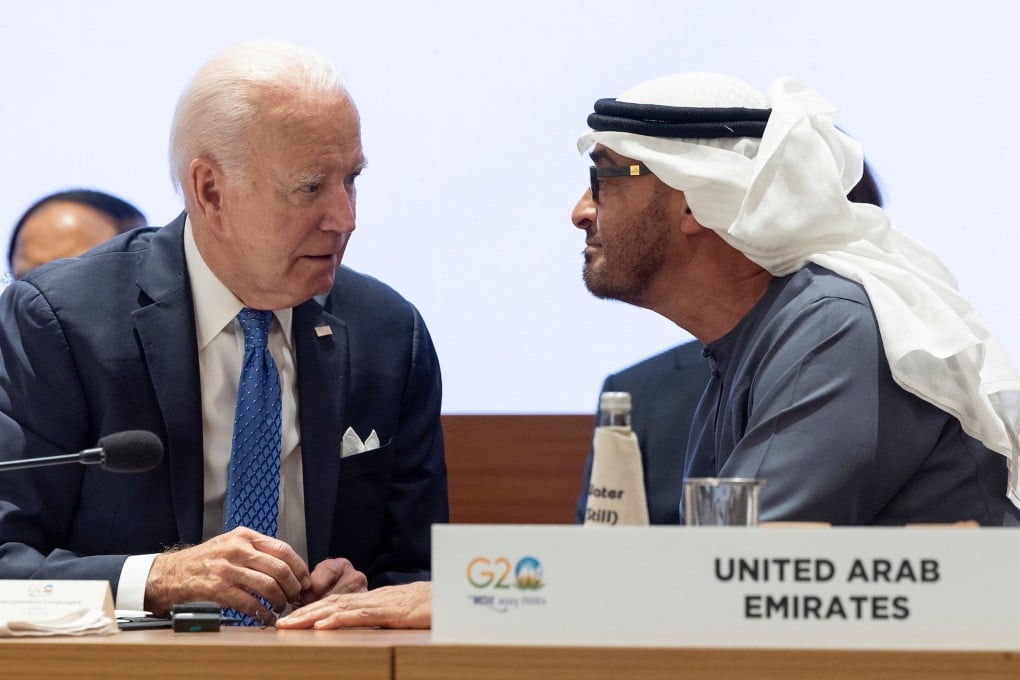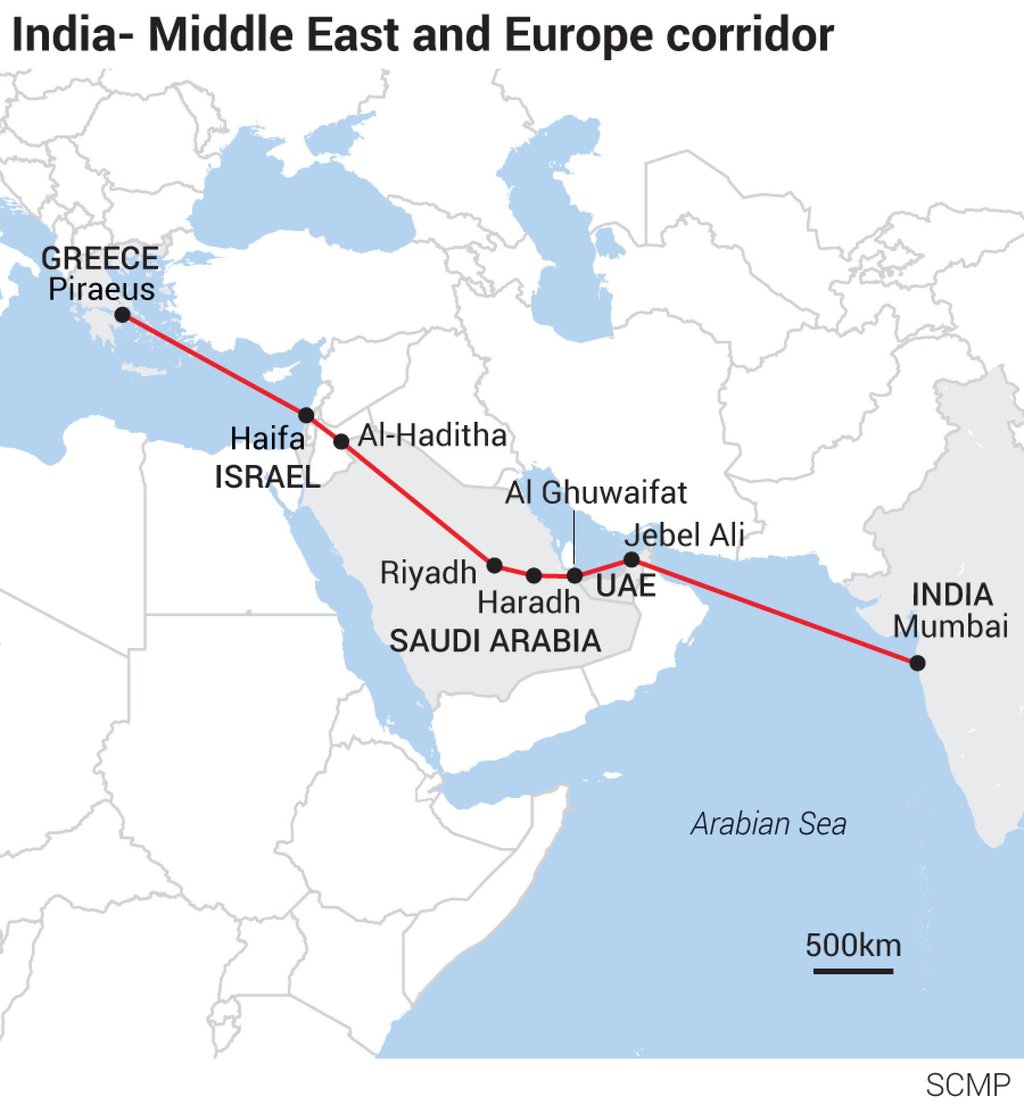Advertisement
Why India’s new US-backed trade corridor to Europe is no ‘anti-China project’ for the Middle East
- Gulf states don’t see the recently unveiled India-Middle East-Europe Economic Corridor through the lens of US-China rivalry, analysts say
- For Saudi Arabia and the UAE, the new corridor ‘seems to make sense’ as part of their diversification push – even if Washington has other ideas
Reading Time:6 minutes
Why you can trust SCMP
14

Narendra Modi has great expectations for the India-Middle East-Europe Economic Corridor (IMEC) he helped unveil to great fanfare at the G20 summit in New Delhi earlier this month, but observers say not all nations involved in the belt and road alternative view it as an “anti-China project”.
The creation of a seamless logistical corridor linking India to southern Europe – via ports, railways and roads in the United Arab Emirates, Saudi Arabia, Jordan and Israel – would expand Delhi’s sphere of influence and offer a viable alternative to an “International North-South Transport Corridor” through Iran and Russia that’s long struggled to get off the ground.
Unlike that attempt, the IMEC aims to open up a new route bringing “Israel and the eastern Mediterranean into India’s neighbourhood”, said Carice Witte, executive director of the SIGNAL Group, an Israeli think tank focused on China. This neighbourhood “just 20 years ago was seen to end at the Gulf of Aden” where the Indian Ocean meets the Red Sea, she said.

For Saudi Arabia and the UAE, the IMEC promises to grant greater access to an emerging Indian market that’s growing ever more lucrative by the year, as both Gulf monarchies seek more ways to diversify their economies away from fossil fuels.
Advertisement
“More broadly, it reflects the diversification of diplomatic relations in the current and emerging multipolar world,” said Guy Burton, an international-relations professor and author of China and Middle East Conflicts: Responding to War and Rivalry from the Cold War to the Present.
“So I don’t think the idea that it will be an anti-China project really washes in the Gulf.”
Indeed, though the IMEC was enthusiastically welcomed as “a really big deal” by US President Joe Biden on the sidelines of this month’s G20 summit, it was India, Saudi Arabia and the UAE – rather than Washington – who pushed hardest for the memorandum of understanding on it to be signed.
Advertisement
Advertisement
Select Voice
Select Speed
1.00x